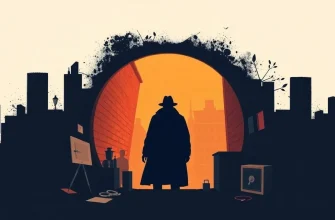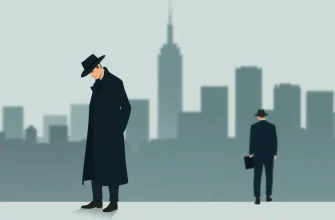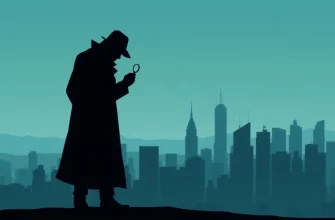Corruption is a theme that has fascinated filmmakers for decades, providing a rich tapestry for storytelling where the lines between right and wrong blur. This curated list of 10 detective films not only entertains but also challenges viewers to ponder the complexities of human nature, justice, and the systems we trust. From gritty urban landscapes to high-stakes political arenas, these movies offer a thrilling exploration of corruption in its many forms.

The French Connection (1971)
Description: This gritty police procedural follows two NYPD detectives as they uncover a heroin smuggling ring, highlighting the corruption that can infiltrate even the most dedicated law enforcement.
Fact: The famous car chase scene was filmed with real traffic, making it one of the most authentic and thrilling sequences in film history.
 Watch Now
Watch Now 
Serpico (1973)
Description: Based on the true story of Frank Serpico, a New York City cop who exposed widespread corruption within the NYPD, this film is a testament to one man's fight against systemic corruption.
Fact: Al Pacino's performance earned him his first Oscar nomination. The film was shot on location in New York City, adding to its gritty realism.
 Watch Now
Watch Now 
Chinatown (1974)
Description: A private detective uncovers a web of deceit involving water rights, murder, and political corruption in 1930s Los Angeles. The film's ending is one of the most iconic in cinema history.
Fact: The screenplay was written by Robert Towne, who won an Oscar for Best Original Screenplay. The film's title refers to a neighborhood in Los Angeles, not the actual Chinatown.
 Watch Now
Watch Now 
The Conversation (1974)
Description: A surveillance expert becomes increasingly paranoid as he uncovers a potential murder plot, delving into themes of privacy, surveillance, and corporate corruption.
Fact: Francis Ford Coppola wrote and directed this film between "The Godfather" and "The Godfather Part II." Gene Hackman's performance is often cited as one of his best.
 Watch Now
Watch Now 
The Untouchables (1987)
Description: Set during the Prohibition era, this film follows Eliot Ness and his team as they battle the corrupt empire of Al Capone. It's a classic tale of good versus evil, with corruption at its core.
Fact: The film's famous "Union Station" shootout was inspired by the Odessa Steps sequence in "Battleship Potemkin." Sean Connery won an Oscar for Best Supporting Actor.
 Watch Now
Watch Now 
L.A. Confidential (1997)
Description: Set in 1950s Los Angeles, this neo-noir film explores corruption in the police department, the media, and the entertainment industry, weaving a complex tale of intrigue and betrayal.
Fact: The film was adapted from James Ellroy's novel of the same name. It won two Oscars for Best Supporting Actress and Best Adapted Screenplay.
 Watch Now
Watch Now 
The Insider (1999)
Description: This film tells the true story of a tobacco industry whistleblower and the journalist who exposes the company's corrupt practices. It's a gripping tale of corporate corruption and personal integrity.
Fact: Al Pacino and Russell Crowe both received Oscar nominations for their performances. The film was based on a Vanity Fair article by Marie Brenner.
 Watch Now
Watch Now 
The Departed (2006)
Description: In this modern classic, a young cop infiltrates the Irish mob, while a mole within the police force rises through the ranks. The film brilliantly showcases the corrupting influence of power and loyalty.
Fact: Martin Scorsese won his first Best Director Oscar for this film. The movie was a remake of the Hong Kong film "Infernal Affairs."
 Watch Now
Watch Now 
The Big Short (2015)
Description: This film explains the 2008 financial crisis through the eyes of several characters who bet against the housing market, exposing the corruption and greed within the financial sector.
Fact: The movie breaks the fourth wall to explain complex financial terms, using celebrities like Margot Robbie and Selena Gomez to simplify concepts for the audience.
 Watch Now
Watch Now 
Nightcrawler (2014)
Description: A freelance crime journalist in Los Angeles uses unethical methods to capture footage of crime scenes, exposing the corruption within the media and the lengths people will go for success.
Fact: Jake Gyllenhaal lost 30 pounds for his role, and the film was shot in a documentary style to enhance its realism.
 Watch Now
Watch Now 








